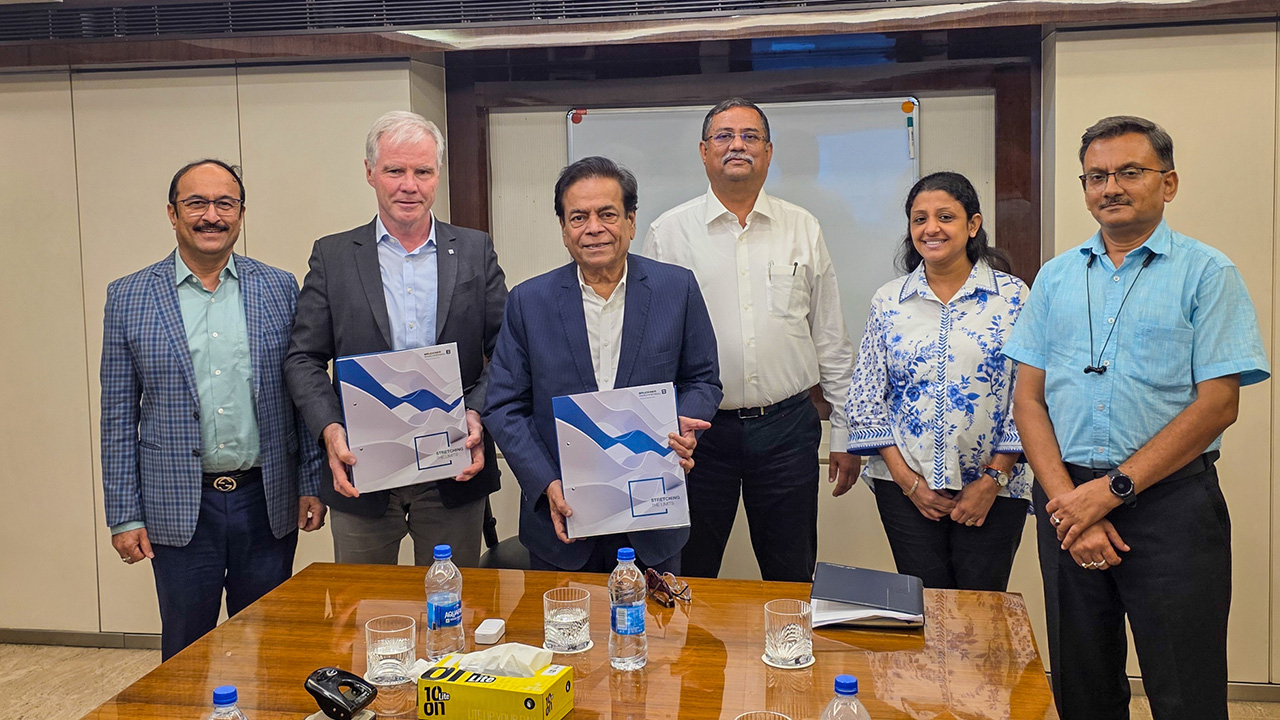Label your sustainability claims
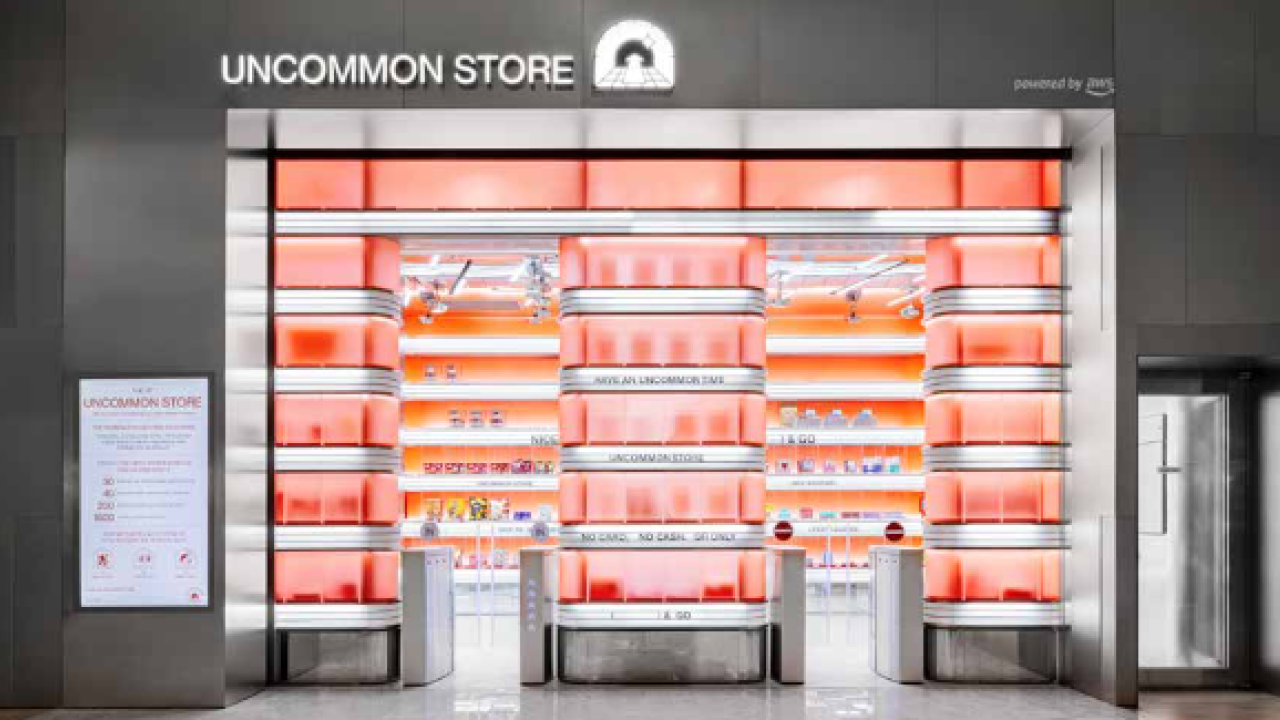
Ahead of the 2021 United Nations Climate Change Conference planned for October and November in the UK, Avery Dennison has teamed up with forecasting consultancy The Future Laboratory to publish a new report: Regenerative Retail Economy. The information was released when the UN Framework Convention on Climate Change challenged retailers to ensure that 20 percent of the retail industry by revenue is committed to net-zero by 2023 and that the entire sector reaches net-zero by 2050 at the latest.
 The report combines expert interviews with consumer insight and identifies emerging trends and attitudes that will drive transformation in the decade ahead. It highlights the technologies which will fundamentally change how retail and consumer brands do business as well as new approaches to e-commerce and omnichannel retailing.
The report combines expert interviews with consumer insight and identifies emerging trends and attitudes that will drive transformation in the decade ahead. It highlights the technologies which will fundamentally change how retail and consumer brands do business as well as new approaches to e-commerce and omnichannel retailing.
According to Tyler Chaff, global sustainability manager at Avery Dennison SmartTrack, now is a time of enormous disruption as the retail sector looks to recover from the Covid-19 pandemic and face the challenges of climate change.
‘This report lays out the bold actions required to help retailers transition to net-zero and a regenerative retail economy,’ says Chaff. ‘In a regenerative retail economy, retailers, manufacturers, suppliers, brands and consumers will each take responsibility and ownership over the collective need for a more sustainable future.’
The report includes three predictions for the future of retail; exploring the importance of pro-planet packaging, openly and transparently communicating environmental impact, and radical collaboration which calls not only on governments to move the world to net-zero carbon emissions, but also on business and civil society to do the same.
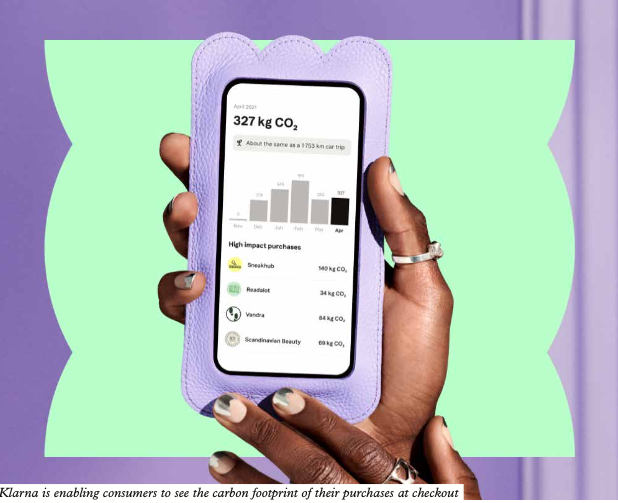 The report highlights that technological investment will be crucial to building a new retail economy as retailers move towards regenerative systems. Research shows that 77 percent of business leaders listed environmental sensors and IoT as essential in meeting their sustainability goals, with more than one-fifth claiming to have accelerated their digitalization plans by three years.
The report highlights that technological investment will be crucial to building a new retail economy as retailers move towards regenerative systems. Research shows that 77 percent of business leaders listed environmental sensors and IoT as essential in meeting their sustainability goals, with more than one-fifth claiming to have accelerated their digitalization plans by three years.
‘The combination of materials and digital solutions will play a critical role in building a regenerative retail economy,’ says Rob Groen in ‘t Woot, marketing director for paper and film at Avery Dennison Label and Packaging Materials. ‘This means recovering and recycling materials at a faster rate than we are using them and creating greener last-mile solutions for packaging, shipping and returns as e-commerce grows. It means digitizing the supply chain so retailers can better understand their inefficiencies and waste to create more circular business models. And it means not only promising to preserve the planet but also proactively contributing to make the natural world a better place for all its inhabitants.’
Tackling greenwashing
It’s easy for brand owners and retailers to make sustainability claims and promises. In June 2021, Changing Markets Foundation published a Synthetics Anonymous report assessing brands across the spheres of fast fashion, luxury fashion and online retailing based on their sustainability claims.
Across all assessed brands, 39 percent of products came with sustainability-related claims such as ‘recycled’, ‘eco’, ‘low-impact’, or simply ‘sustainable’. The Foundation assessed whether these claims stood up against the Competition and Markets Authority’s (CMA) new guidelines on avoiding greenwashing – 59 percent did not.
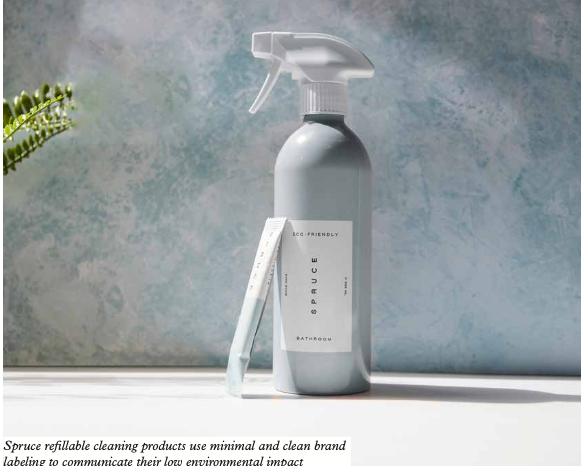 From 2009 to 2010, environmental marketing firm Terr Choice found ‘green’ labeling increased a whopping 73 percent. In 2010, the company also found that 95 percent of ‘green’ products are greenwashed. On the outside, the products looked environmentally friendly, but in truth they were not as ‘green’ as they claimed to be.
From 2009 to 2010, environmental marketing firm Terr Choice found ‘green’ labeling increased a whopping 73 percent. In 2010, the company also found that 95 percent of ‘green’ products are greenwashed. On the outside, the products looked environmentally friendly, but in truth they were not as ‘green’ as they claimed to be.
Green Claims Code, new guidance published by the UK Government’s Competition and Markets Authority, aims to tackle the ongoing problem of greenwashing by applying six principles to which all sustainability claims must adhere. The changes cover on-pack, off-pack and digital communications, aiming to level the sustainability playing field, increase consumer protection and rebuild trust.
‘Across the retail industry, we’ve seen sustainability take center stage even in the tough Covid-19 conditions, and naturally packaging dominates much of this discussion. With greenwashing and misleading claims, the umbrella term “sustainability” has lost any edge or marketing punch – it’s just white noise to consumers now. Shoppers want more information and are prepared to dig deeper to understand the true nature and credentials of a product,’ says Joanna Stephenson, managing director at PHD Marketing.
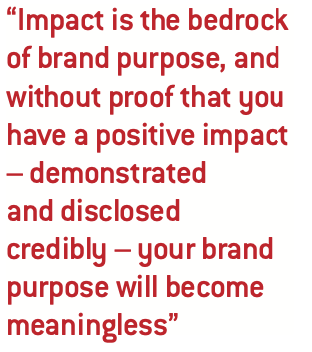 More consumers are seeking retailers who not only align with their values but have the proof to back up their claims. Consumers discover brands in new ways and seek convenience, transparency and new experiences to guide their shopping decisions. Covid-19 is accelerating this trend, catapulting consumer experiences and consumers’ expectations years into the future.
More consumers are seeking retailers who not only align with their values but have the proof to back up their claims. Consumers discover brands in new ways and seek convenience, transparency and new experiences to guide their shopping decisions. Covid-19 is accelerating this trend, catapulting consumer experiences and consumers’ expectations years into the future.
Technology in action
As the environmental impact becomes a metric by which retailers are judged, they will need to offer transparency and traceability and back up sustainability claims with evidence. Retailers will calculate and share their impact with consumers, and technology will allow consumers access to end-to-end transparency across the supply chain.
‘Impact is the bedrock of brand purpose, and without proof that you have a positive impact – demonstrated and disclosed credibly – your brand purpose will become meaningless,’ says Jessi Baker, founder of Provenance, a digital platform that enables brands to track the journey of their products.
Provenance’s Transparency Framework helps companies evidence their marketing claims and avoid greenwashing, turning supply chain data into consumer-facing information.
Working with Provenance, New Zealand dairy brand Anchor added QR codes to its milk bottles to verify its sustainability claims, from its bio-based bottle to its grass-fed cows. Each claim Anchor makes is backed up by third-party verification.
Meanwhile, the recently-launched Higgs Index transparency program for apparel brands aims to be the first holistic system for communicating sustainability performance across a product’s lifecycle. In this initial phase, it will focus on environmental impact and aims by 2022 to include social data as well, showcasing the expanding definition of sustainability.
Having proof of impact will become the new standard for retailers looking to deepen their sustainability story. Ultimately, by making the work traceable and transparent, retailers will benefit from long-lasting consumer trust.
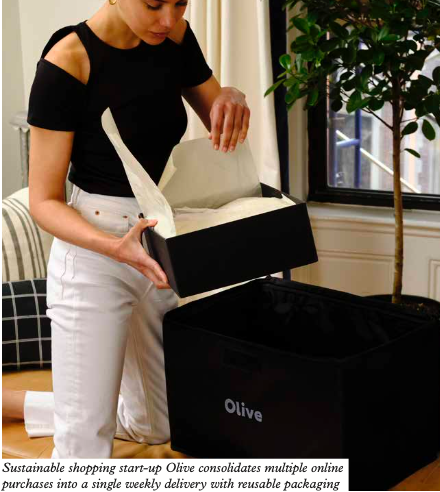 ‘Those that gain trust through deeper levels of transparency will be better off than focusing on one-off activations,’ says Avery Dennison’s Chaff. ‘An aspect of companies being verified as sustainable means that I, as a consumer, don’t have to do the work. I can trust the company I’m buying from has already done it, and that’s more convenient.’
‘Those that gain trust through deeper levels of transparency will be better off than focusing on one-off activations,’ says Avery Dennison’s Chaff. ‘An aspect of companies being verified as sustainable means that I, as a consumer, don’t have to do the work. I can trust the company I’m buying from has already done it, and that’s more convenient.’
Technology such as RFID, digital labels and the connected product cloud-enabled supply chain offer visibility and better inventory management. One of the leading lingerie brands in France, Etam Group, has turned to RFID and digital ID technologies to drive omnichannel innovation and transparency while offering a best-in-class consumer experience and boost to its sustainability objectives.
‘The functionality offered by Avery Dennison SmartTrack’s products is critical to our drive to remain the lingerie market leader in terms of consumer experience and our omnichannel strategy,’ says Benjamin Durand-Serving, COO at Etam Group.
Today, the goal of this business approach is to offer what Team refers to as ‘the best-in-class retail and omnichannel experience in the lingerie segment’. To achieve this, Etam is exclusively deploying digital ID technology from Avery Dennison SmartTrack. This includes RFID and QR-coded hangtags to digitize the whole value chain and processes, along with vendor shipments, store inventory accuracy, self-check-outs, returns or reverse logistics, e-commerce, and the try-at-home initiative.
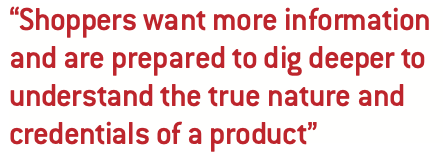 The deployment of RFID is critical to Etam’s transparency project. Clients can scan the product label with their smartphone to get instant access to short videos that provide insights into the factory where the item was produced. This further supports Etam’s sustainability efforts and broadens the consumer experience beyond what many of its competitors can offer, including big global brands.
The deployment of RFID is critical to Etam’s transparency project. Clients can scan the product label with their smartphone to get instant access to short videos that provide insights into the factory where the item was produced. This further supports Etam’s sustainability efforts and broadens the consumer experience beyond what many of its competitors can offer, including big global brands.
By the end of 2021, Etam plans to extend its transparency program to every item sold, which is a pioneering breakthrough within the textile industry.
‘As demand signals across channels become harder to predict, there have also been significant impacts on product, retail store, factory, and logistics services availability,’ says Uwe Hennig, market development director for food and apparel at Avery Dennison SmartTrack. ‘The most successful retailers will be those that connect with consumers in new ways by leaning on their digital, omnichannel, and in-store technology ambitions.’
To read the free Regenerative Retail Economy report by Avery Dennison and The Future Laboratory, go to: https://link.labelsandlabeling.com/avery
Stay up to date
Subscribe to the free Label News newsletter and receive the latest content every week. We'll never share your email address.
